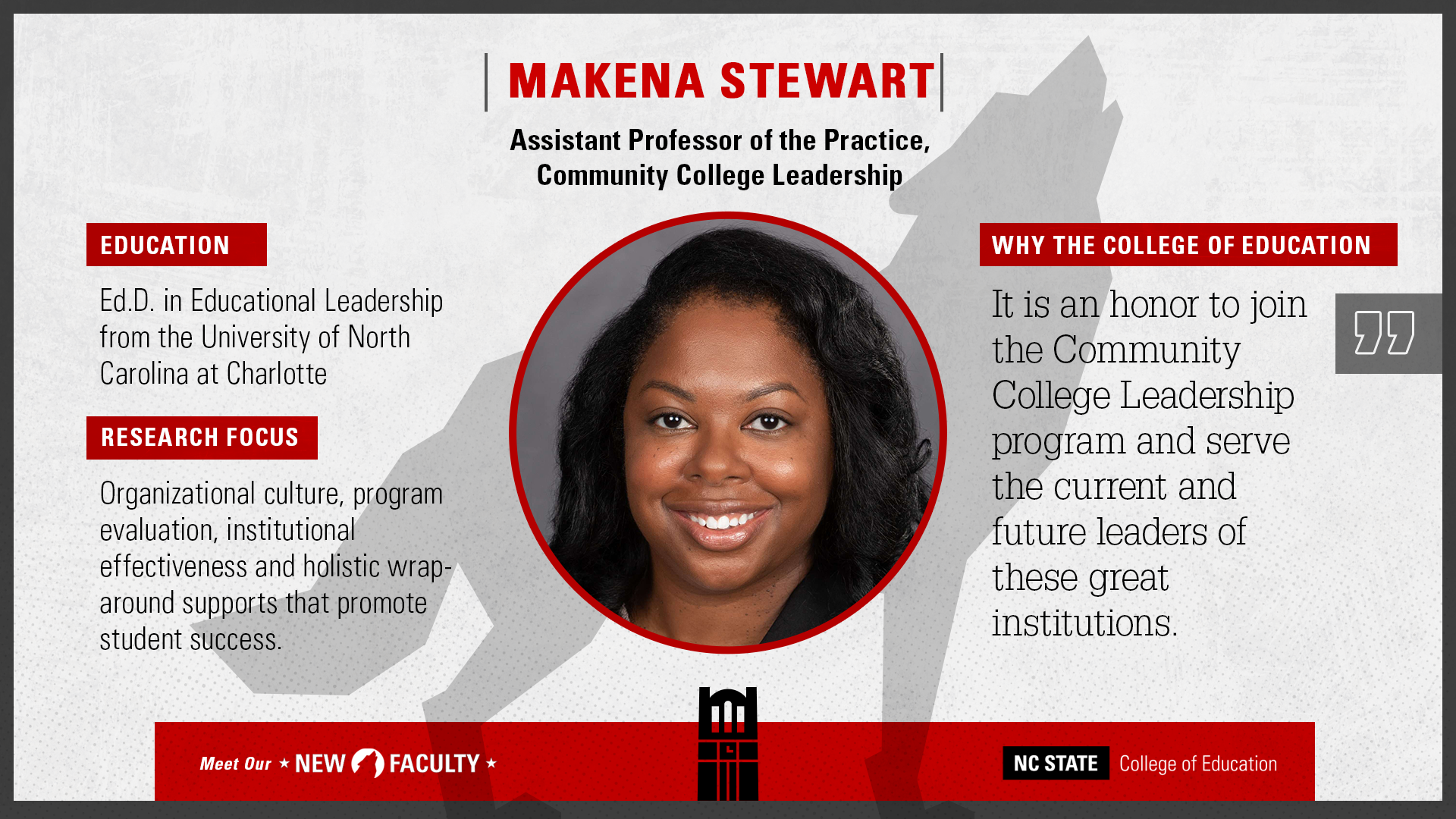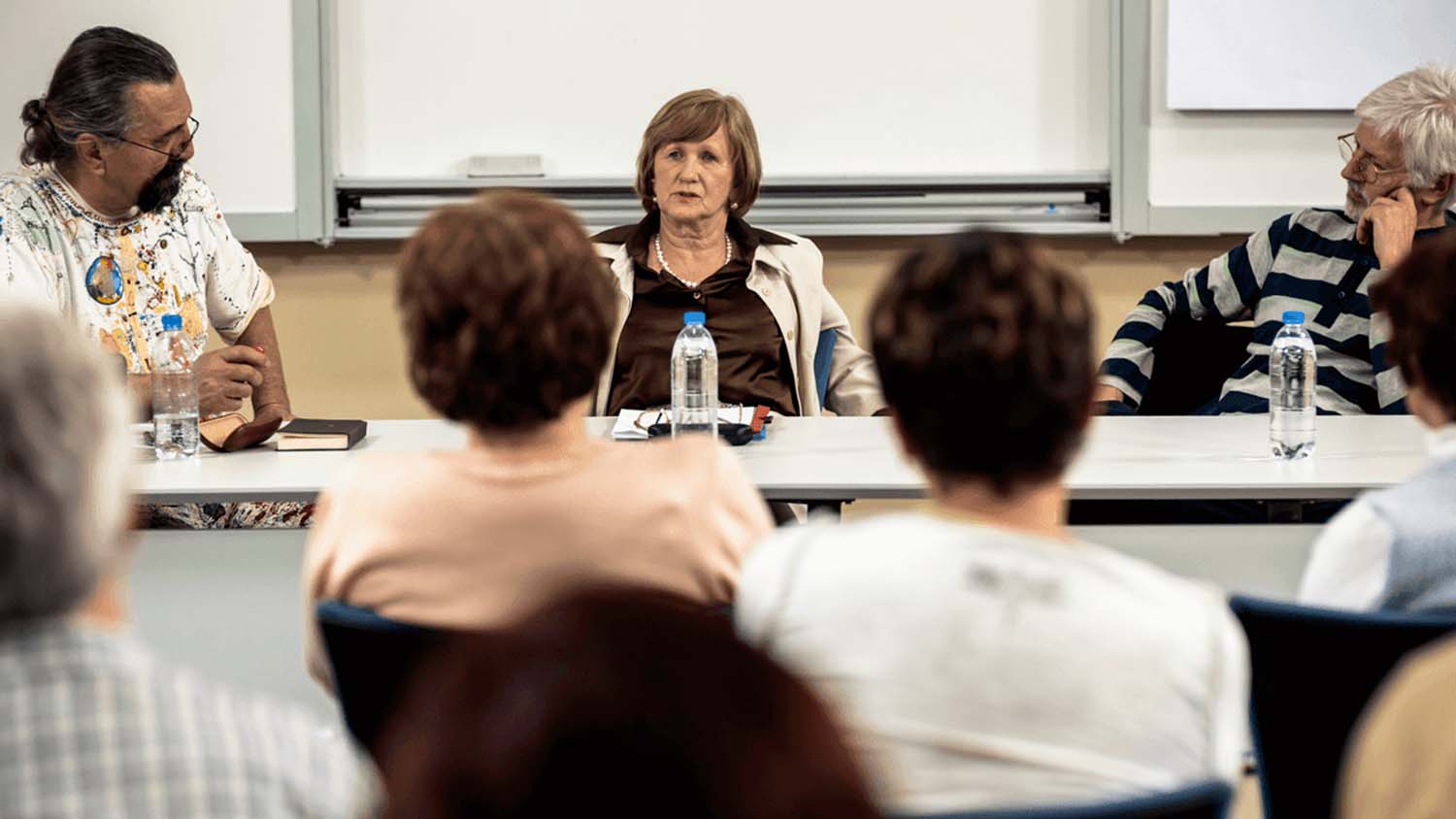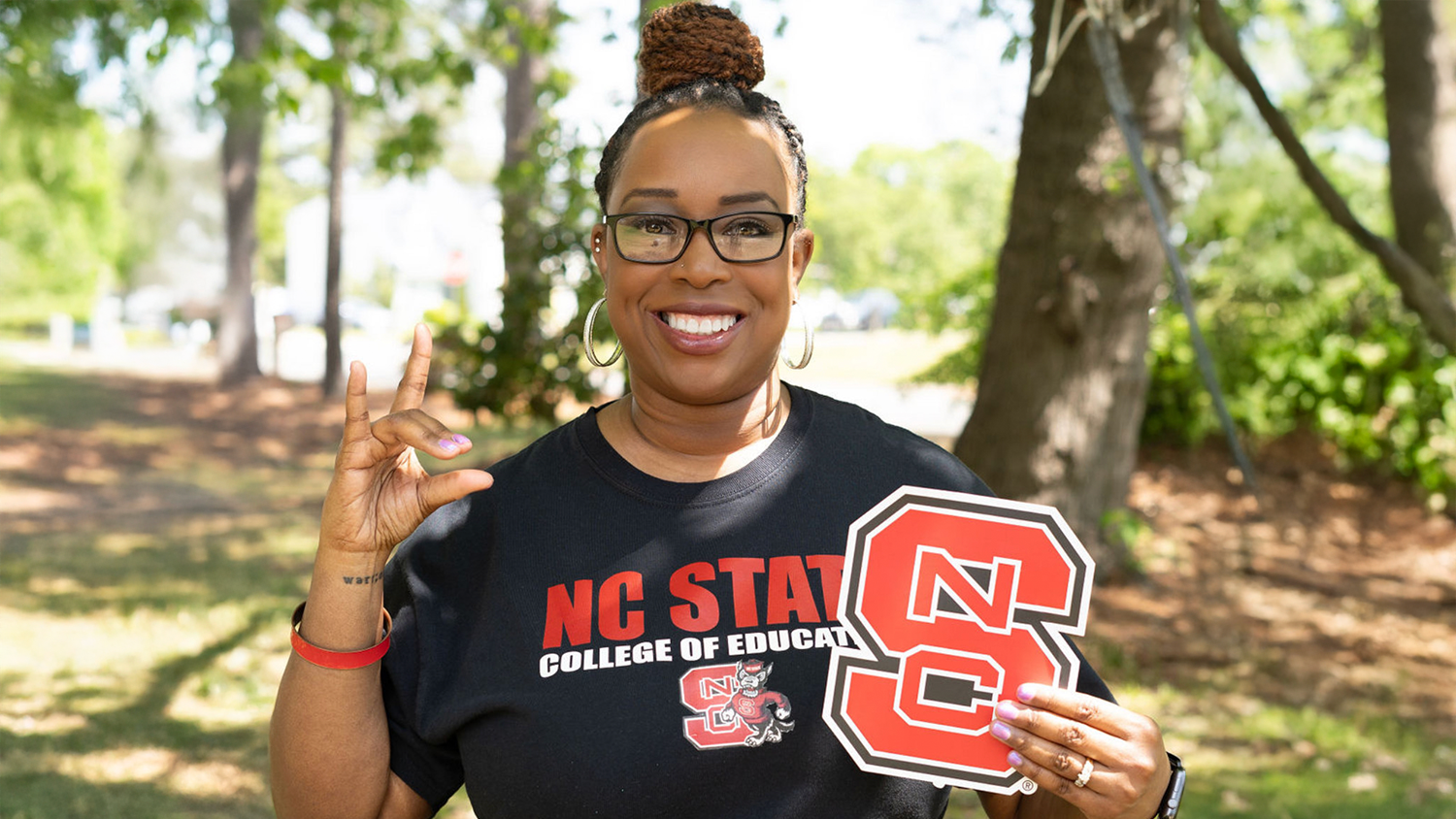Meet Makena Stewart: ‘It Is Important to Allow Space for Students to See How They Contribute to the Learning Process’

Makena Stewart is joining the NC State College of Education during the 2024-2025 academic year as an assistant professor of the practice in community college leadership.
Stewart previously served as the vice president of strategic excellence at South Piedmont Community College as well as in various administrative and community college leadership roles in student services, academic affairs, and research and planning. She earned her Ed.D. in Educational Leadership from the University of North Carolina at Charlotte.
Learn more about Stewart below:
The following Q&A has been edited for length and clarity.
Why did you choose a career in education?
I grew up in a household where a love of learning was nurtured, and I was encouraged to seek opportunities to grow deeper in my knowledge. This encouragement came not only from my family, but also from my teachers. During my master’s program, a faculty member encouraged me to apply for a position in a community college as a career coach. That opportunity opened my eyes to a whole new world of possibilities. There, I gained a deeper understanding of the impact education can have on changing the lives of individuals as well as a community.
What inspired you to pursue a doctoral degree?
I love every level of education and have always had a spirit of inquiry and curiosity. After my master’s degree, I wanted more structured learning and the doctoral degree provided me with the tools to hone my research skills and apply them in a practical way in the community college setting.
What are your research interests?
Organizational culture, program evaluation, institutional effectiveness and holistic wrap-around supports that promote student success within the community college.
What sparked your interest in those topics?
My background as a community college practitioner has provided me with experiences in many areas of leadership, such as academics, student services and institutional effectiveness. Having these multiple vantage points has helped me to understand how intricately connected every part of the institution is and the impact this connection has on the success of the student. Community colleges foster a spirit of innovation and continuous improvement, and I am interested in capturing these best practices in my research.
What is one moment or project in your academic career that you are particularly proud of?
I had the opportunity to co-lead an institutional quality enhancement plan that was designed to improve the academic advising experience for all learners; being able to collaborate with colleagues to identify a problem of practice, research and implement a a model built on best practices for student completion was incredibly rewarding.
What is your teaching philosophy?
My teaching philosophy is built upon my experience as a learner. I know how powerful it is to have one’s curiosity nurtured; as a result, I never pass up an opportunity to cultivate that same experience for my students. The learning environment is a place of great discovery, and it is my privilege to foster those moments of discovery through active learning and real-world application. Every single student adds value, and it is important to allow space for students to see how they contribute to the learning process.
What do you hope your students will learn from you?
I hope my students will learn the importance of being reflective leaders so they can deploy creative solutions to complex educational problems. Most importantly, I want my students to demonstrate authenticity, lead with compassion and understand that their decisions help shape the lives of future students.
What do you believe makes an extraordinary educator?
An extraordinary educator is one who sees the whole student and is willing to be innovative to ensure that all students are met at the point of their needs, and who is not afraid to dig deeper for understanding.
- Categories:


